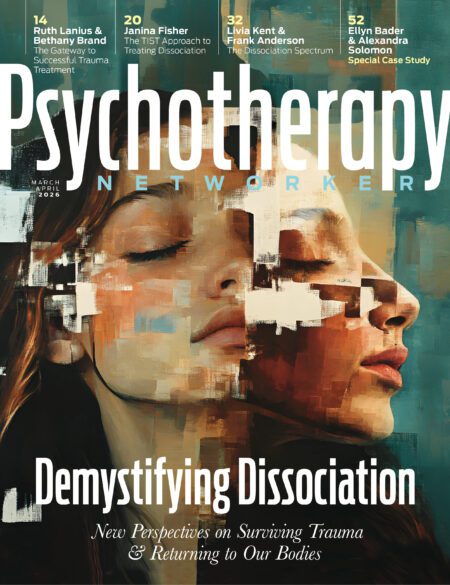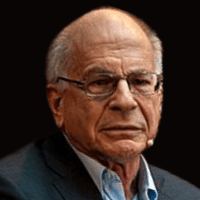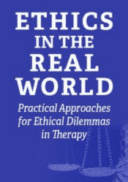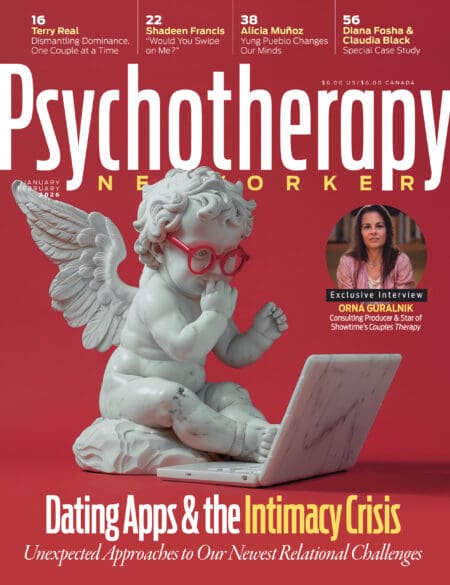Enjoy the audio preview version of this article—perfect for listening on the go.
It’s generally recognized that there are two ways in which thoughts come to mind. If I say “two plus two,” something instantly comes to your mind. If I say “seventeen times twenty-four,” probably nothing comes to mind immediately. You can produce a solution if you know how to do it—it’s 408—but computing that’ll take you some time. Clearly, different operations are involved in the response to different kinds of problems. That’s what I call System 1 and System 2.
System 1 is associative and immediate. In System 1, things just come to our mind. System 2 is different. We feel that in System 2, we’re the authors of our own thought. System 2 requires attention, effort, and mental work.
In System 1, we’re more aware of feelings, wishes, or vague intentions. In System 2, we’re often aware of not doing everything that comes to mind, but System 2 mostly engages and endorses what comes to mind from System 1. I sometimes describe System 2 as the relationship between a newspaper editor and a journalist. The journalist (System 1) writes stories, while the editor (System 2) looks at them to see whether there’s a major problem; if not, it just goes to print. Only if there’s a problem do you slow down and try to do something that doesn’t immediately come to mind.
In psychotherapy, you’re often trying to get System 1 and System 2 to relate to each other in a somewhat different way. It may be that System 1 is running the show in someone’s life, and their System 2 is trying to talk back to System 1, but without a lot of success. Just as being aware that you’re addicted to something doesn’t enable you automatically to get out of that habit, System 1 is the associative machinery of our mental processes, and it’s typically very hard to change it. While you can teach System 2 new tricks to some extent, System 1 is difficult to reeducate.
Strategies of Change
Still, there are many ways in which System 2 can influence the operation of System 1. In the first place, you can make decisions about the context of your life, and then the context will take over. So if there are no cigarettes in your home, you’re less likely to smoke. If there are no cookies, you won’t eat cookies. The easiest form of self-control is to restrict your environment in a way that’ll reduce temptations.
I’m not an expert on therapy, but much of what therapists seem to do is help people re-image the situations in their life and acquire new mental habits. What can make that process difficult is that while System 1 is quick to change responses to context, it’s slow to learn new habits. Nevertheless, we do learn to drive and acquire other everyday skills in life and, to some limited extent, we can acquire different mental skills, or we can overcome some habits of mind that bring us misery. For example, it sometimes happens that people find new ways to label what’s happening to them, and that new label may have different emotions associated with it. So by labeling situations in a new way, you can sometimes change your response to them. So insights in therapy, to the extent that they lead you to a different labeling of situations, can change people’s emotional response. Actually, relabeling isn’t all that different from acquiring a new habit.
The Power of Story
Our associative memory is organized to maintain an ongoing narrative of our life. This happens automatically. We don’t have to deliberately construct stories: our associative machinery is built in such a way that it tends to produce interpretations of the world, stories that are more coherent and simpler than reality. If something happens, we tend to look for a possible cause and, without deliberate effort, typically link two events to make up a story to “explain” what happened. The halo effect, attributing positive qualities in one context to someone who’s impressed us in some other way in another context, is an example of a simple associative story. If somebody is good at something, we tend to see them as good in everything. Black and white is simpler than recognizing shades of gray.
Our tendency toward believing our own stories is important in determining how we think about our lives. If you ask somebody, “How was your vacation,” as opposed to asking in a given moment of the vacation “How are you now?” you’re asking different questions to different aspects of the self. The first question is addressed to what I call the “Remembering Self” and the second question is addressed to the “Experiencing Self.” In fact, the Remembering Self doesn’t necessarily take into account what the Experiencing Self has actually been through.
The Remembering Self tends to be sensitive to the structure of a story, especially how things end. If an experience ends well, then it casts a different coloring on what went before. So it turns out that we tend to control our life by anticipating how we’ll remember something in the future. It’s the Remembering Self that’s really in charge, and it drags the Experiencing Self along, frequently imposing experiences on the Experiencing Self that aren’t necessarily the best ones.
Here’s a thought experiment that highlights the difference I’m talking about. Think of your next vacation and then imagine that at the end of the vacation you’ll be given a drug that causes you to forget the whole vacation. Would you go to the same vacation, even if you knew you wouldn’t remember it? Would you go on vacation at all? Would you go on a different vacation? Thinking about that’ll give you the idea that there’s a lot that you do because you’re creating memories, and knowing that there are going to be no memories changes our attitude about what we’re doing.
What Really Matters
Wisdom, as I understand it, is an ability to look at complex situations and distinguish what’s important from what’s not important. It’s the wheat from the chaff. Wisdom is about determining the things that really matter and what’ll make a difference in the long run. Wisdom might be thought of as our ability to allow our System 1 and System 2 to have regular conversations with each other, to be aware of all the automatic errors we make in coming to our judgments because of the built-in biases of our cognitive machinery.
I’d like therapists to think about themselves and their own reactions in terms of System 1 and System 2. I’ve spent many years studying these systems, and, with all that, I still can’t say that I’ve been successful in changing many of my own bad mental habits. The best we can often do is to just be aware of how unreliable our mental machinery can be.
Daniel Kahneman
Daniel Kahneman, a cognitive research psychologist, received a 2002 Nobel Prize in Economic Sciences for his work demonstrating that human beings tend to make decisions on the basis of fast, spontaneous, intuitive—often wrong!—reactions and subjective experiences, rather than objective facts, slow deliberation, and hard logic. His book “Thinking Fast and Slow” explores the role of the automatic response in human thought, and just how instinctively unwise we can be.













